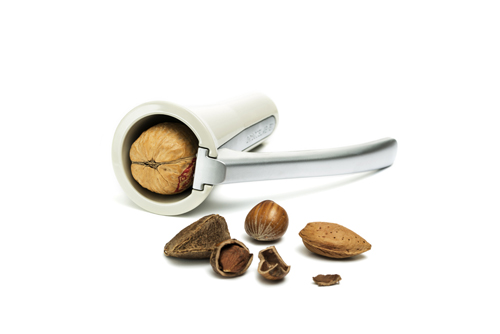Hazelnuts, also known as filberts have been steadily gaining popularity thanks to their use in goodies like the famous and beloved by old and young, cocoa spread called Nutella. And it is not a surprise as these little, crunchy kernels are delicious no matter if you eat them raw, roasted or grounded to a paste. However, hazelnuts are not just yummy – they are good for your health too. Full of antioxidants, fiber, and proteins, hazelnuts are the ideal food for someone on a vegetarian regimen. These nuts act like a natural antioxidant and they are full of iron and vitamins.
Evidence of nut processing on the island of Colonsay in Scotland have been traced back to the Mesolithic and have been dated to be 9, 000 years old. This is a significant discovery as it gives us a look at the way of life at that period. It is known that Romans also cultivated hazelnuts. In China, the filbert was considered as one of the “five sacred nourishments God bestowed on human beings”, according to a manuscript from the 2838 BC. During the 1800’s there was a boom in the cultivated varieties of hazelnuts and in 1830 – the “Kentish Cobnut” (the first widespread cultivar) was presented.
Nutritional value
In 100 grams serving of hazelnut, there are 628 kcal. These little nuts are super high in protein, fiber, magnesium, phosphorus, Vitamin E and thiamin – a vitamin often used as a dietary supplement. In addition, hazelnut consists of a substantial supply of B vitamins, vitamin K, zinc, calcium, and potassium. They are also a great source of total fats that include monounsaturated and polyunsaturated fats, actually – 100g of nuts provide 93% of the needed daily value.

The Drosselmeyer Nutcracker. Visit our Shop
Lifecycle
One of the most interesting things about hazelnuts is that they actually bloom and air – pollinate during the late winter months. The little flowers are dormant until June when the nut starts to form. During the summer, the nuts turn from green to hazel. The harvesting of the hazelnut is an annual event and starts mid-autumn when the trees drop their nuts and leaves. It is most preferred for the tree to naturally do that, but sometimes there is an equipment called “sweeper” to make the process faster by shaking the tree.
Around the world
Hazelnuts have a unique taste and their crunchy texture makes them an excellent addition to a lot of dishes and in confectionery. For example, in Austria, they make the famous Viennese hazelnut torte using hazelnut paste as the main ingredient. In Ukraine, they are no strangers to this amazing, little nut as well. Their Kiev cake is made using hazelnut flour, that is added to the meringue and everything is topped with a healthy dosage of crushed hazelnuts – sounds so delicious, doesn’t it? In France, a traditional cake called Dacquoise is prepared with a mix of hazelnut and almond meringues. Hazelnut plays a big role in the traditional Georgian candy called Churchkhela. Belgians make pralines – a chocolate shell filled with a filling of hazelnut, almonds, sugar, and syrup. And of course, there is not a person in this world who doesn’t know about Nutella. This super delicious hazelnut and cocoa spread originated in Italy and is a well-loved addition to any breakfast (and sometimes dinner and lunch as well.)
Health benefits
1. Hazelnuts are great addition to a vegetarian diet
Delivering the required daily dosage of proteins is an essential part of having a healthy body. However, if you choose to follow a vegetarian-based diet it might be hard to obtain them. According to the U.S. Department of Agriculture, an ounce (or 21 hazelnuts) of raw hazelnuts could provide you with up to 8% of the needed daily value of proteins.
2. Hazelnuts provide you with a healthy heart
Full of unsaturated fats, hazelnuts are a great and tasty way to lower your low-density lipoprotein (LDL, or “bad”) cholesterol levels. The Vitamin E effects the development of plaques in your arteries. The presence of plaques can lead to narrowing them, chest pain and even heart attack.
3. Hazelnuts reduce cholesterol levels
In a research by Scientific and Technological Research Council of Turkey (TÜBİTAK) was shown that oleic acid prevents high cholesterol levels in healthy individuals and lowers the cholesterol levels in people who already suffer from it. The hazelnut concentration of such acid is substantial, thus making it a perfect way to supply the needed dosage to the body.
4. Hazelnuts boost your immune system
Full of calcium, magnesium, potassium, and manganese, hazelnuts are a gold mine of nutrients, much needed to encourage the blood circulation in the body, which in turn boosts your immune system powers.
5. Hazelnuts make your bones stronger
Minerals like calcium and magnesium are indispensable in order to have healthy bones and teeth. So by giving your body those essential minerals that the hazelnut contains, you actually give it a way to literally build stronger bone density and mass. Also, the manganese that those brown, chewy nuts contain prevents osteoporosis and brittle bones
6. Hazelnuts are good for the digestive system
In order to maintain bowel regularity, it is necessary to supply your organism with a daily dosage of fiber. In 100g of hazelnuts, there are 10g of fiber. According to the Institute of Medicine – Women need 25 grams of fiber per day, and men need 38 grams per day, so this makes the humble hazelnut a great option to keep you regular.
According to the 2010 Dietary Guidelines from the U.S. Department of Health and Human Services, dietary fiber can prevent constipation because of its laxative effect.
7. Hazelnuts are great for fighting iron deficiency
Since hazelnuts are a good provider of iron, they are an ideal snack to munch on in case of an iron deficiency also known as anemia. Iron produces red blood cells that carry oxygen throughout our body. 30% of the needed daily dosage of iron can be supplied by just a handful of those tiny nuts.
8. Hazelnuts are good in case of a fungal infection
The oleic acid that they contain eliminates fungi and bacteria in your body, improving your overall immunity and health.
9. Hazelnuts for the hair
Hazelnuts can serve as a natural ingredient to dyes, giving your hair a beautiful brown coloring without damaging it. On the contrary – hazelnut oil is perfect to use on damaged hair in order to restore its shine and vitality. The oil also helps to maintain your hair color for longer after dyeing it. Just massage some of the hazelnut hair oil on your scalp and leave it for the night – you will be pleased with the results.
10. Hazelnuts for the skin
If you want to delay the appearance of those pesky wrinkles – a handful of hazelnuts can be your new best friend. Packed with Vitamins E, Vitamin C, and Vitamin A, using nuts helps to slow down the forming of fine lines. The fats in the hazelnut can act like a great moisturizer, giving the skin a slight glow, thus making it look healthy and fresh.
Image Copyright: Kate Ter Haar, License: CC BY 2.0



